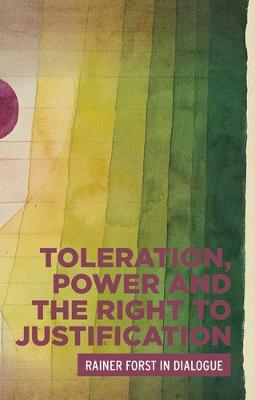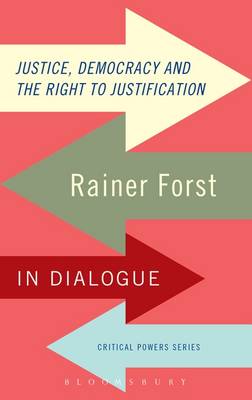Critical Powers
2 total works
Rainer Forst's Toleration in Conflict (published in English 2013) is the most important historical and philosophical analysis of toleration of the past several decades. Reconstructing the entire history of the concept, it provides a forceful account of the tensions and dilemmas that pervade the discourse of toleration. In his lead essay for this volume, Forst revisits his work on toleration and situates it in relation to both the concept of political liberty and his wider project of a critical theory of justification. Interlocutors Teresa M. Bejan, John Horton, Chandran Kukathas, Daniel Weinstock, Melissa S. Williams, Patchen Markell and David Owen then critically examine Forst's reconstruction of toleration, his account of political liberty and the form of critical theory that he articulates in his work on such political concepts. The volume concludes with Forst's reply to his critics.
This book is available as open access through the Bloomsbury Open Access programme and is available on www.bloomsburycollections.com.
Over the past 15 years, Rainer Forst has developed a fundamental research programme within the tradition of Frankfurt School Critical Theory. The core of this programme is a moral account of the basic right of justification that humans owe to one another as rational beings. This account is put to work by Forst in articulating - both historically and philosophically - the contexts and form of justice and of toleration. The result is a powerful theoretical framework within which to address issues such as transnational justice and multicultural toleration. In this volume, Forst sets out his ideas in an extended essay, which is responded to be influential interlocutors including: Andrea Sangiovanni, Amy Allen, Kevin Olson, Anthony Laden, Eva Erman and Simon Caney. The volume concludes with Forst's response to his interlocutors.
Over the past 15 years, Rainer Forst has developed a fundamental research programme within the tradition of Frankfurt School Critical Theory. The core of this programme is a moral account of the basic right of justification that humans owe to one another as rational beings. This account is put to work by Forst in articulating - both historically and philosophically - the contexts and form of justice and of toleration. The result is a powerful theoretical framework within which to address issues such as transnational justice and multicultural toleration. In this volume, Forst sets out his ideas in an extended essay, which is responded to be influential interlocutors including: Andrea Sangiovanni, Amy Allen, Kevin Olson, Anthony Laden, Eva Erman and Simon Caney. The volume concludes with Forst's response to his interlocutors.

